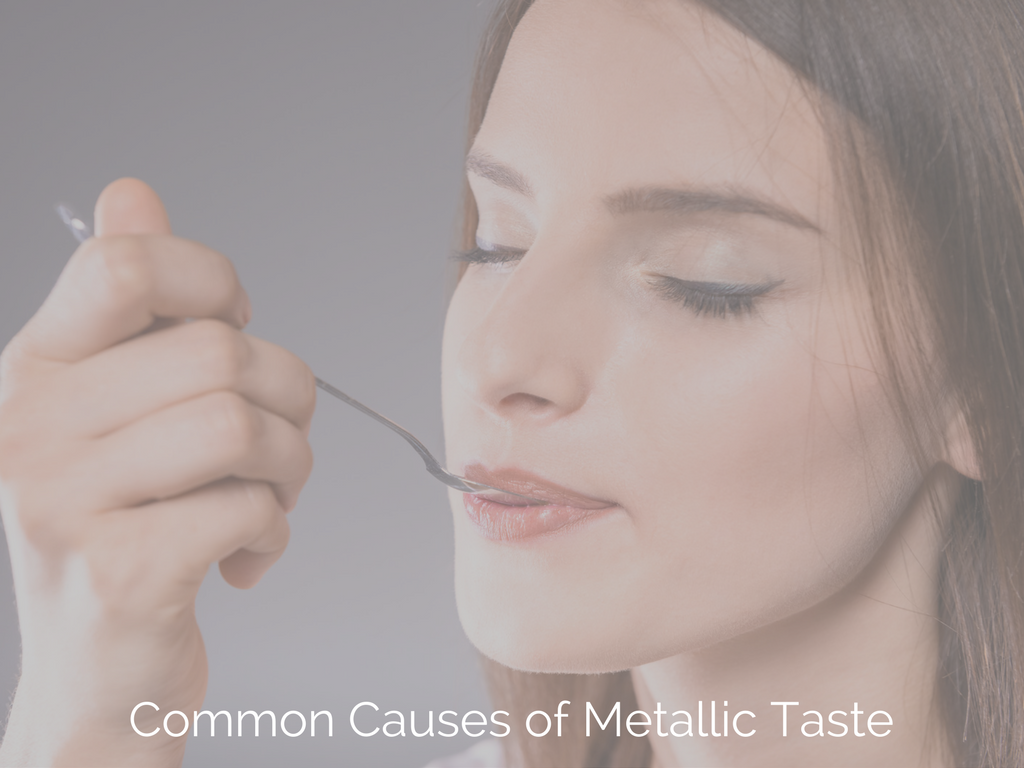This entry was posted on Friday, February 17th, 2017 and is filed under Blog by AENT Associates
What Is Parageusia?
Parageusia, or a chronic metallic taste in your mouth, effects any people of every walk of life and degree of health. The onset may be sudden or develop over time, can last for a few minutes, or linger indefinitely. This condition can be merely an annoyance, or even interfere with eating and drinking. There are a number of things that can cause a metallic taste, and it is helpful to understand the way your sense of taste works before examining things that can effect it.
The human sense of taste is moderated by two areas: the olfactory nerves in the nasal cavity, and the taste buds in the mouth. The scent and taste of things are recorded by these nerves, which then send signals to the brain, where the tastes and scents are identified. When this process is effected by certain circumstances, it can cause a metallic taste in the mouth.
Depending on the cause and severity, your doctor might be able to ease or eliminate parageusia. There are many things that can cause metallic taste, which your medical professional will need to know to help diagnose you.
Most Well-Known Causes of Parageusia
Medications
Medicine for conditions such as osteoporosis, glaucoma, blood pressure, and antibiotics can all cause metallic taste. Some over-the-counter medications can also alter the sense of taste.
Food Allergies
Tasting an overwhelming metallic flavor while or after eating certain foods can be a symptom of a food allergy.
Pregnancy
Many women report strange changes in their sense of smell and taste during pregnancy. This phenomenon is especially common early on. Experts don’t fully understand the cause, but believe it has to do with hormonal changes.
Respiratory, Sinus, and Middle Ear Infections
The congestion and mucus common with respiratory infections is a well-known cause of metallic taste in the mouth.
Tooth and Gum Issues
Poor dental hygiene and disease can interfere with proper function of taste and smell.
Cancer Treatment
Many cancer treatment drugs cause dry and metallic taste in the mouth. It is commonly called “chemo mouth.”
Central Nervous System Issues
The nerves themselves are damaged, and thus can’t pass the correct information about taste to the brain.
Middle Ear Surgery
Surgeries performed to help stop chronic ear infections can damage delicate parts of the oratory system that also control taste buds on part of the tongue. This can affect the sense of taste, including the metallic taste.
When the final diagnosis is made by a doctor, they may prescribe medication to help ease the metallic taste, change a medication that is causing the issue, or refer you to a specialist for further consultation and treatment. The latter is especially true if the cause is something more serious.
Speaking to your doctor, or in more serious or complicated cases, a specialist, can often help find a way to ease or eliminate the bothersome problem of parageusia. Consult with an expert in this disturbance in your area today!


